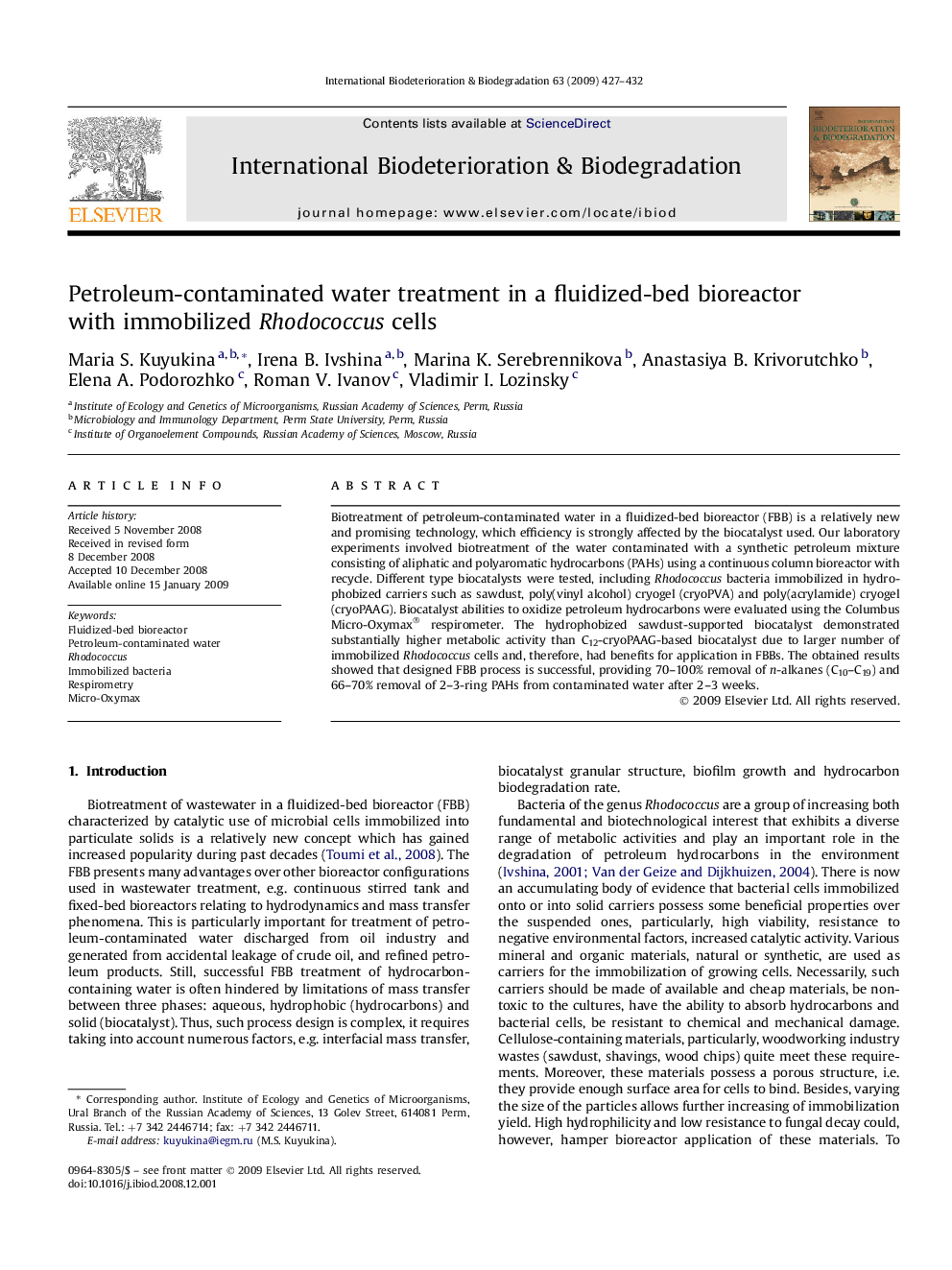| Article ID | Journal | Published Year | Pages | File Type |
|---|---|---|---|---|
| 4365408 | International Biodeterioration & Biodegradation | 2009 | 6 Pages |
Abstract
Biotreatment of petroleum-contaminated water in a fluidized-bed bioreactor (FBB) is a relatively new and promising technology, which efficiency is strongly affected by the biocatalyst used. Our laboratory experiments involved biotreatment of the water contaminated with a synthetic petroleum mixture consisting of aliphatic and polyaromatic hydrocarbons (PAHs) using a continuous column bioreactor with recycle. Different type biocatalysts were tested, including Rhodococcus bacteria immobilized in hydrophobized carriers such as sawdust, poly(vinyl alcohol) cryogel (cryoPVA) and poly(acrylamide) cryogel (cryoPAAG). Biocatalyst abilities to oxidize petroleum hydrocarbons were evaluated using the Columbus Micro-Oxymax® respirometer. The hydrophobized sawdust-supported biocatalyst demonstrated substantially higher metabolic activity than C12-cryoPAAG-based biocatalyst due to larger number of immobilized Rhodococcus cells and, therefore, had benefits for application in FBBs. The obtained results showed that designed FBB process is successful, providing 70-100% removal of n-alkanes (C10-C19) and 66-70% removal of 2-3-ring PAHs from contaminated water after 2-3 weeks.
Related Topics
Life Sciences
Environmental Science
Environmental Science (General)
Authors
Maria S. Kuyukina, Irena B. Ivshina, Marina K. Serebrennikova, Anastasiya B. Krivorutchko, Elena A. Podorozhko, Roman V. Ivanov, Vladimir I. Lozinsky,
